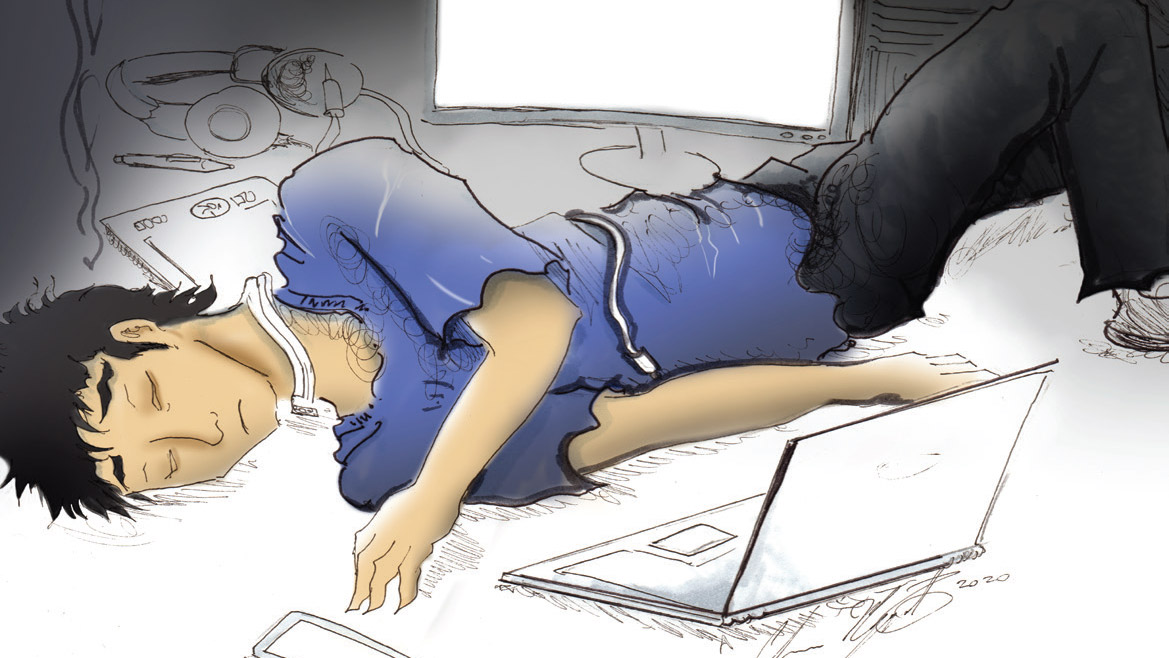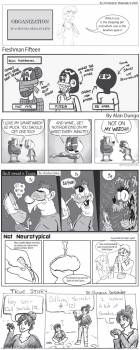Are you feeling Zoom fatigue?
 CREDIT: CHRIS MISZCZAK
CREDIT: CHRIS MISZCZAKDon't forget to look up from your screen every once in a while.
Technology has always been a big part of my life.
It has been part of my personal life, working life and just overall everything that I tend to do involves technology in some way, from the Walkman that I had as a kid, to the smartphone that I carry now. Quite simply I have grown up in a technological age. It is kind of hard to say, even with an affinity for technology, that occasionally I get tired of using it.
This started not that long ago when I was working full-time, and after a long day that my eyes would start to hurt. I would often get a bit of a headache and at the time I would take this as a sign that it was time to take a break and to do something else.
However, this year in particular things have changed dramatically, since classes have moved online — as well as homework, research, communications and even the time that I would set aside to relax. I find that once again technology is causing a great amount of headache, stress, and chronic fatigue.
“It’s all about setting healthy boundaries,” explained leadership development and diversity, equity and inclusion consultant Mohamed Hammoud. “There is a definite blending in between what is personal, educational and business when it comes to technology. The boundaries are not as obvious as they were before, it is much more nuanced now.”
Nowadays we might very well have a desktop computer, a laptop computer, a smartphone and maybe even a tablet. Could one say that this is a touch excessive? Perhaps it is, but several others talk about the same thing. National Geographic, TechCrunch, and even the CBC are coining a term called “Zoom fatigue.”
A very close friend even told me that there is so much on Netflix that it is hard to stay on top of everything. There is simply so much content out there, that it is hard to stay on top of everything to stay relevant.
“What we can learn from this experience is that we need to be more resilient, but also to be much more open to change. In the long-term, we are going to look back and be a lot stronger as a result. If we are walking around constantly with a phone in our hand while at home, it might very well be too much. At the end of the day, it is about finding a healthy balance,” said Hammoud. “To not be afraid to find out what works for others and what can work better. We need to be aware that too much of anything can be a bad thing, it’s about regulating our own use — so that we can still be healthy.”
The narrative might sound like we have too much technology, but that is not the case at all. I would argue that neither extreme is the answer.
What is being stated, from my own observations, experiences from my friends, and peers is that quite simply we are too tired. With everything else going on this year, adding technology fatigue is the last thing that we need but it is becoming more and more of a reality. With every other stressor we have in today’s world, it’s not surprising something like technology fatigue is becoming a bigger issue than ever before.
The best advice that one can provide is that it is still very important to take a break from technology, lest we become even more overwhelmed with all the additional stressors that we must deal with. Remember once in a while to turn off the computer or phone and walk away from it for a few moments.
Practice a sense of discipline. It is simple to point to one extreme and say that the answer lies within it; that too much of technology is bad or that we should stop using it all together. I would argue to finding that balance where we still use technology, but to not let it overwhelm or consume our lives is the takeaway from this experience.
Time management is a skill that we are all still learning and perfecting. Even after college we continue to perfect this skill further.
Remember to set time aside to simply unwind, as it is important for your mental health. Admittedly this year could have been a lot worse without technology. Remember though, that there is a life beyond the screen in front of our faces.















